This is a great game to play at home as a family, as adults can enjoy it as much as children. There is a lot of rules to learn at first, but the fun and learning is very much worth it afterwords. Feel free to tweak with the rules to suit you.
The purpose of this game is to experience the vast challenges humans faces when forming the first civilizations, and to see the even greater amount of solutions they came up with in order to overcome them. We also get to see the changes in the structure of society that historically occurred as a result of the farming revolution: the rise of professions, government and hierarchy. Lastly, the unique development of each game played can bring up naturally new issues to think about, such as economy, immigration, refugees, population growth and natural disasters.
But more importantly – it is really fun!!!
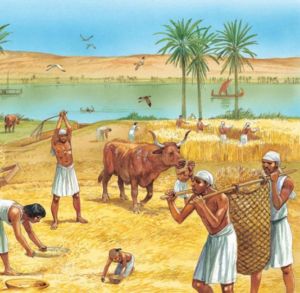
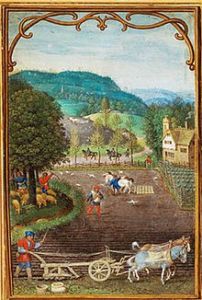
Premise of the game:
Each of you is playing a group of early farmers that have come to settle in the same valley. Despite the hardships, you need to build a society that will survive and flourish.
You must document (in writing and drawing) and update what exists in your civilization (how many people you have, their proffesions, how many homes do they have, how much food, and so forth) .
The game is played in rounds, and each player gets to choose each round how to proceed (farming, raiding, training, building etc.). As the game proceides they are special scenarios such as market round, births and special events (slave rebellion, visiting scholar and earthquake for example).
The game is over when it is clear that everybody in the valley has either established a stable civilization, or have joined other players to do so.
You Will Need:
- Dices
- Paper (one papey for each player).
- Writing and drawing utensils.
- The game instructions (below).
- “Special Scenario” notes. Write these scenarios on small pieces of paper and fold them (you will draw them in the special scenario rounds). As you get more familiar with the game, you should come up with your own. Here are some to start with:
a. A travelling scholar (whoever provides it shelter and food can use the scholar to train up to two people to become a different profession).
b. Earthquake! (role a dice for each building, If you role 1 or 2 it is destroyed).
c. Slave Rebellion! (all slave run free and attack their enslavers. Role for each slave, for every role of 6 they have killed one of your people).
d. Great harvest! In the following round each player that decides to farm gets to add +2 to their dice result.
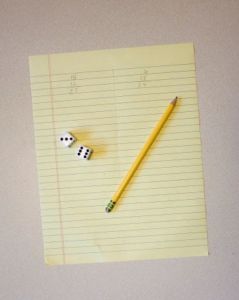
Game Instructions – Part 1
The aim of the game is to manage to establish a civilization that will survive and flourish.
All of you are trying to settle in a valley and become farmers. In each round, you need to decide during your turn from one of these options:
- Roll a dice so that you can farm, and get food. If you have more than one field, you roll more than once.
- To make a raid (attack) on another group.
- To train one of your people to take on a special role.
Each person who has a special profession can act in each turn (a builder can build, a doctor can heal, regardless of what the rest of the group does).
Each “person” in a group consumes one food on each round.
If there is no food, the person dies or becomes a refugee and leaves to another group. A group can accept the refugee as a slave, a farmer, or as someone with a special profession (if they had one from before).
You start with –
1 field, 4 farmers, 2 houses, 8 Foods
1 field, 4 farmers, 2 houses, 8 Foods
Market – Each 4 rounds there is a “market round”. Every group who has a merchant can come to the market and trade whatever they like (except buildings), and make alliances. There may be merchants from “outside the valley” to trade with.
Births – Every 5 rounds is a “birth round“. For every three people you have, you can choose to have a baby. Role a dice for each baby – if you role “6”, you will have a baby in the next round. Babies take up 1 food, do not need housing and will become adults in 3 rounds. Babies are fragile, so for each baby in each round role a dice. If it is “1”, the baby is ill. A doctor can save it on a roll of 5 or 6. If not, it dies.
Events round – Every 6 rounds there will be a “special event”.
Game Instructions – Special Rounds
Market – Each 4 rounds there is a “market round”. Every group who has a merchant can come to the market and trade whatever they like (except buildings), and make alliances. There may be merchants from “outside the valley” to trade with.
Births – Every 5 rounds is a “birth round“. For every three people you have, you can choose to have a baby. Role a dice for each baby – if you role “6”, you will have a baby in the next round. Babies take up 1 food, do not need housing and will become adults in 3 rounds. Babies are fragile, so for each baby in each round role a dice. If it is “1”, the baby is ill. A doctor can save it on a roll of 5 or 6. If not, it dies.
Events round – Every 6 rounds there will be a “special event”.
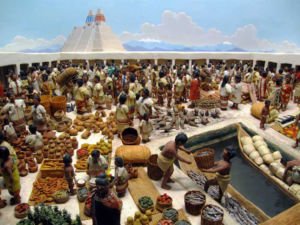
Infrastructure
Warehouse (food storage) –
Protects food from rooting and animal invasions. In case of a natural disaster, only half the supply is lost. Can store up to +10 food.
Food that isn’t stored rots within 2 rounds!
Takes one round for farmers to build, or one round for a single builder.
House –
Each one can house up to 2 regular citizens, or 5 slaves or one ”high class” person. Takes two rounds for farmers to build, or one round for a builder.
Fence –
Stops animal invasions. Takes one point off a raid. You may build a second fence around a field (double fence). Takes one round for farmers to build, or one round for a builder.
Extra Field –
Allows growing more food (throws a separate dice), and can be used to train someone to be a different profession, while the other field is still used for farming. To use an extra field, you need a path/bridge to it, at least two farmers, and a house on it.
Path/Bridge-
Connects the fields. A path between two groups allows you to trade outside of the market. Takes three rounds for farmers to build, or one for a builder.
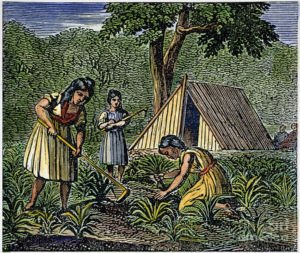
If you choose to farm:
What happened with my crops? (Roll the dice)
2-4 – Natural disaster! All unprotected food is lost in flooding, fire or drought.
5 – Disaster! There is a plague! You lose a turn. Also, you need to throw a dice for each person. If you roll 1 or 2, the person dies.
6 – Disaster! half of the crops have been eaten by invading animals.
7- Successes! Get +2 food for each farmer.
8 – Successes! Get +3 food for each farmer.
9-10 – Very good yield! Get +5 food for each farmer.
11-12 – Very good yield! Get +8 food for each farmer.
If you choose to raid:
If you choose to raid another group, you cannot grow crops or train people during that turn.
Throw the dice to see how you did:
2-4 Total disaster! You have been captured, and become slaves.
5-6 No success, but no damage.
7-8 Each person who raided manages to get away with +3 food.
9 – Capture! Each person who raided manages to get away with +3 food, and to capture some people. Throw the dice for each person you want to capture for the other team. Every time you get more than the other team’s dice, you get to take that person to your team.
10-12 – Conquest! You have taken over the other team’s field. Throw the dice against your opponent for each person on their team. If you get more, they become yours. If not, they escape and become refugees.
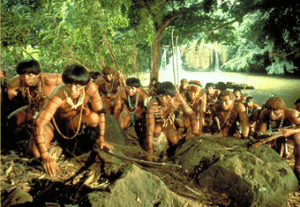
People
Remember – each person needs to eat 1+ food each turn, and to be housed.
“Regular Citizens”:
Farmer – provides food. It takes two farmers to make a working field. Each two farmers can also build, but they can’t grow crops at the same time and they are slower than one professional builder.
Builder – can build a warehouse, house, fence or bridge.
Doctor – In case of plague, a doctor rolls the dice. At 5-6, the plague is averted. If not, than for each person that is supposed to die, the doctor rolls a dice. In case of 5-6, the patient is healed and saved.
Soldier – Each soldier adds +1 to defense and attacks in raids.
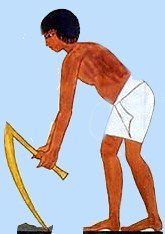
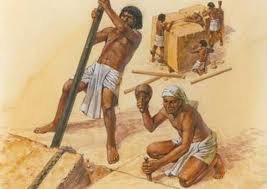
Merchant – only a team with a merchant can get to the market.
Tailor specialist – provides special clothing for the “high-class” people.
Slave – can be a farmer, or a slow builder (like a farmer). Doesn’t need much housing.
The “high class” citizens:
Each “high class” citizen demands their own private house, special clothing from the tailor, and eats +2 food each turn.
Bureaucrat – For each 3 fields you need one bureaucrat to help manage them.
Spiritual leader – For each 4 fields you need a spiritual leader to help unite them.
Military officer – For each 5 soldiers, one of the soldiers needs to become a military officer.
